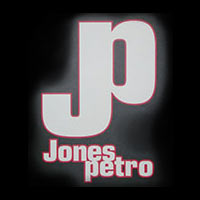FAQ
What is Propane?
Propane is a hydrocarbon (C3H8) and is sometimes referred to as liquefied petroleum gas, LP-gas, or LPG. Propane is produced from both natural gas processing and crude oil refining, in roughly equal amounts from each source. Nearly 97 percent of propane consumed in the United States is produced in North America. It is non-toxic, colorless, and virtually odorless. As with natural gas, an identifying odor is added so the gas can be readily detected.
Is Propane Dangerous?
No. Propane is an approved, clean fuel listed in the 1990 Clean Air Act and the Energy Policy Act of 1992 and is one of the cleanest burnings of all fossil fuels. Tests conducted by the U.S. Environmental Protection Agency show that propane-fueled vehicles produce 30 percent to 90 percent less carbon monoxide and about 50 percent fewer toxins and other smog-producing emissions than gasoline engines. Propane also is non-toxic, so it’s not harmful to soil or water.
Is propane safe for my family and me?
Yes. Propane is a very safe fuel. But as with any energy source, there are steps you should take to further ensure your safety:
If you detect a gas leak, immediately evacuate everyone from the house and call your local propane provider or the fire department from a neighbor’s telephone.
Learn what propane smells like. Propane retailers print scratch-and-sniff pamphlets to help your family recognize its distinctive odor.
Know where gas lines are located, so you won’t damage them when digging or working in the yard.
Change or clean furnace filters regularly as recommended by the manufacturer.
Don’t store cleaning fluids, oil-soaked rags, gasoline, or other flammable liquids near a gas-burning appliance, where vapors could be ignited by the pilot light.
What are the advantages of propane?
There are six very good reasons why you should consider propane for your home energy needs:
1. Propane has a wide variety of uses: heating, water heating, cooking, clothes drying, swimming pool water heating, hot tub & sauna heating, and emergency generators. Propane is also used to fuel cars and trucks.
2. Propane is a clean-burning, environmentally-friendly fuel that can be stored safely in residential & commercial underground tanks.
3. Propane heating equipment is designed to operate efficiently. Some equipment can be as high as 96% efficient. That means for every heating dollar you spend, you get 96 cents worth of heat.
4. Propane heats water at one-half the cost of electricity.
5. Propane heating and water heating equipment can be installed with special direct venting systems which do not need a chimney. This will save you money on retrofitting and unnecessary construction.
6. Unlike competitive fuels, most of the propane used in the United States comes from North American sources.
Who uses Propane?
Propane is a trusted and reliable energy source that is used by millions of Americans each day. It fulfills energy needs by burning cleanly and efficiently, giving consumers more value for their energy dollars. People use propane in and around their homes for furnaces, water heaters, air conditioners, outdoor grills, fireplaces, and appliances; on farms for uses such as pest control, crop drying, and irrigation pumps; for industrial uses such as forklifts and fleet vehicles; and in millions of commercial establishments including restaurants and hotels that depend on propane for heating, cooking, and other uses.
Is propane really convenient to use and store?
Yes. Propane retailers deliver it right to your home. Propane tanks are environmentally friendly, require little maintenance, and can last up to 40 years. Propane’s portability in liquid form makes it a convenient fuel for grilling, camping, and other uses. Up to 56,000 miles of pipeline and more than 6,000 retail dealer locations make propane readily available throughout the United States.
How can I recognize a propane leak in my home?
Propane has a strong, unpleasant smell, like rotten eggs, a skunk’s spray, or a dead animal. Propane manufacturers add the smell deliberately to help alert customers to propane leaks, which can create a safety hazard. You can ask your propane retailer for a demonstration to help everyone in your home or building identify leaks.
If you have any more questions, let us know!
PropaneKids.com is a fun, interactive site that educates children about the safe use and environmental benefits of propane.
Training and informing industry and consumers on the safe handling, storage, and use of propane is a top priority at PERC. From across the nation propaneprofessionals have come together to help us guide and support the industry’s efforts to build and maintain high public confidence in propane’s safety and value. We take pridein the industry’s exemplary record and its commitment to the safety of everyone who works with, buys, and depends on propane.


